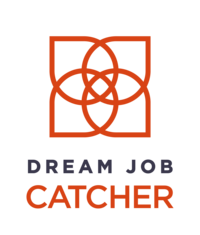Dream Job Blog
Our insights, advice and best practices on job search strategies, professional development and growth mindset.
Christina ran her own video and film production company for nearly two decades. She had a lot of great projects under her belt including documentaries and campaigns for prestigious universities and Fortune 500 companies. But she was missing something — a team. She wanted to join a group of creatives to collaborate on ideas and projects.
It’s impossible to read the news without seeing a headline about the economy or job market. Unfortunately the media only focuses on hiring freezes and layoffs. I have yet to see a headline that features hiring and the vast number of high performing companies.
Many people I talk to have an idea of what their dream job is, but it’s often a stretch role. They want to uplevel their career when they make a move, which makes sense. They want to leverage their experience and all the skills they’ve gained and step into a bigger position.
Over the past couple of months, this has become one of the most frequently asked questions we get.
It’s just about that time, where we reflect and take stock of the year. The good, bad and inevitable regrets — the dreaded would’ve, could’ve, should’ves.
It’s been an exciting hiring year! I’ve had so much fun helping clients evaluate and negotiate their offers. By and large, they’re going to great companies including Databricks, Qualtrics, Avalara, Pegasystems, LinkedIn, AWS, Google, Microsoft, Apple and Salesforce as well as high growth startups.
Job search trends have evolved significantly over the past decade. What worked for most people in the past (like submitting applications online), is no longer effective. So it makes sense that job search strategies and best practices have changed.
I often get asked about the most important strategy to land a dream job, which I define as one you’ll love and thrive in. The challenge is there are so many aspects to the job search journey, it’s impossible to pick just one thing. So I’ve curated a list of articles that contain tips, best practices and exercises to help you be successful in your endeavor.
Last month one of our clients landed his dream job. Colin worked at a Fortune 100 tech company for 14 years. During the first 9 years, he had a progressive career — led key initiatives, delivered impressive results and was promoted every other year. However, the last 5 years were stagnant. Colin was given the projects that no one else wanted and weren’t material to the business. Over the last few years, he felt stuck, discouraged and resentful.
I used to humble brag about the number of recruiters who reached out to me (yeah I was that guy). I pursued some, but most of them didn’t go very far because they weren’t interesting or a good fit for me.












